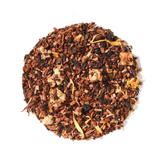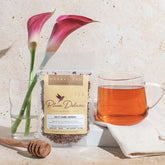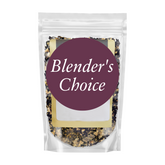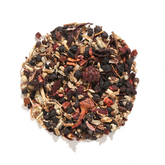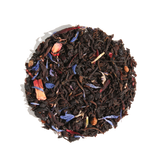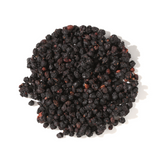Yes, I believe it does.
Teas that are suggested as sleepytime teas usually contain nervines, which are herbs that have an effect on our nervous system. Nervines fall into three categories; stimulant, tonic, and relaxant.

Different Nervines for Different Purposes
Stimulant doesn’t always mean caffeine (though caffeinated plants are considered nervines). It also includes plants like mint, which certainly can be stimulating to some people. Tonic herbs nourish and strengthen the nervous system, helping us be more capable to handle stress.
Relaxant is pretty straightforward, acting to relax the nervous system in different strengths. In sleepytime teas, we are most often looking for relaxant nervines.
Relaxant nervines help us release tension by shifting our sympathetic nervous system, the system responsible for flight, freeze, or fight when we are stressed or frightened, to the parasympathetic nervous system, which is responsible for being at rest and digesting our food.
This switch helps us calm down the effects of stress and anxiety on our bodies, like shallow breathing, muscle tightness, stomach upset, and sleeplessness.
Stress also has mental effects that can be eased by nervines, like worrying, circular thinking, anxiety, and irritability. Different nervines work in different ways, but the right one can help us relax and catch some sleep.

Sleepytime Favorites
While the word nervine may be new to you, the herbs themselves probably aren’t. There are plenty of herbs you’ve likely enjoyed in sleepytime teas.
Chamomile is perhaps the most well-loved nervine for tea. This herb is sweet and apple-scented. It's useful for anxiety, nervous stomach, and mild insomnia. Plum Deluxe carries several teas that contain this soothing herb such as Cuddletime, a blend of mint and chamomile, Calm Chamomile Bloom, which includes the soothing herbs of rose and lavender, and Tranquil Peach herbal tea.
While chamomile is gentle, valerian has a stronger sedative effect. Valerian is well-known for its ability to help you fall and stay asleep. Plum Deluxe carries a tasty blend combining valerian and mint in the Night Cap herbal tea.
Another familiar nervine that’s good for sleepytime teas is the beloved rose. Rose is an herb for the heart. Soothing sadness, mourning, overstimulation, insomnia, and anxiety. Rose has a lovely perfumed taste that is uplifting.
Calm Chamomile Bloom, Evening in the Garden, Custard Apple, Peach Bellini, Slowly Unwind, Best Friend’s Advice, Sage Wellness, and Rejuvenation Blend all contain rose petals.
Slowly Unwind is my choice of the bunch, as it also contains a lesser-known nervine, linden.

Final Thoughts
Different nervines serve different purposes and can affect everyone uniquely. Some people find the sedative herb Valerian to be stimulating. I personally find mint soothing instead of stimulating.
Some herbs are well-suited for children and the elderly. Nervines are also excellent allies for anxiety if that is what keeps you up at night.
When needing a good night’s sleep and wondering “does sleepytime tea work?” I hope you consider giving some of these nervine blends a try. It's worth it to find a good tea to help you take a deep breath and get some rest.
While nervines are most beneficial when used regularly, these herbs are there to help us when we need them most. So put the kettle on and cuddle up with a hot cup of sleepytime tea. It’s time for sleep.
I write as someone who grows and uses herbs with love; I am not a medical professional. Please consult your physician with any questions before trying a new herbal regimen.
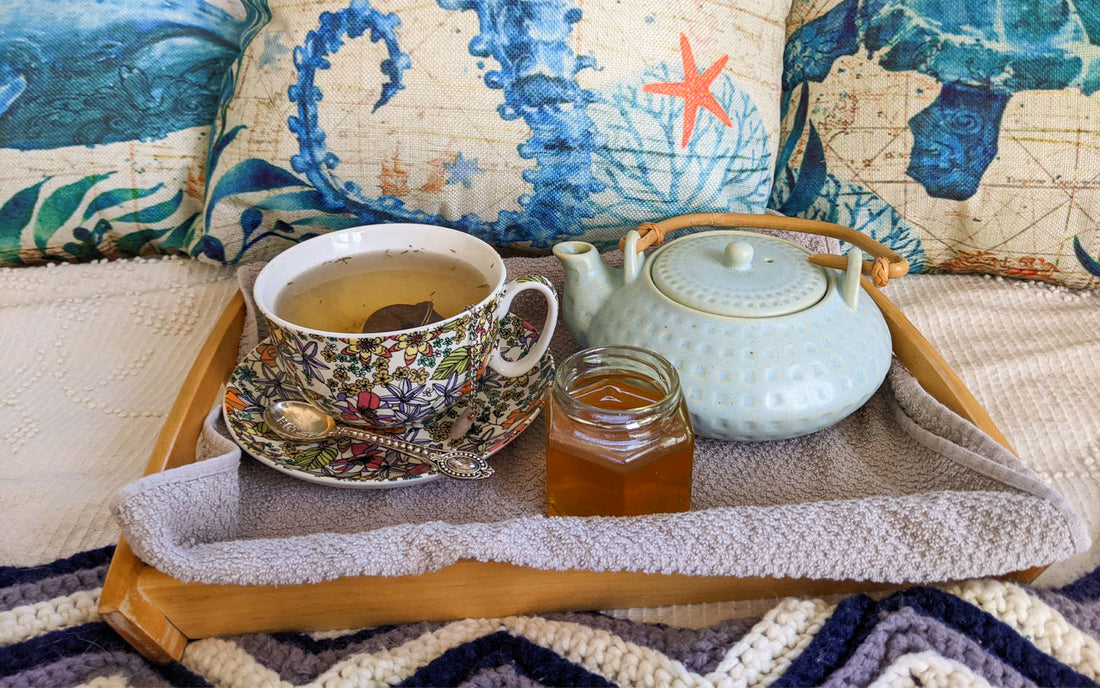
![Spring Break Tea Variety Pack [6-Pack Variety of Flavors]](http://www.plumdeluxe.com/cdn/shop/files/spring-break-pack.jpg?v=1740682266&width=165)

